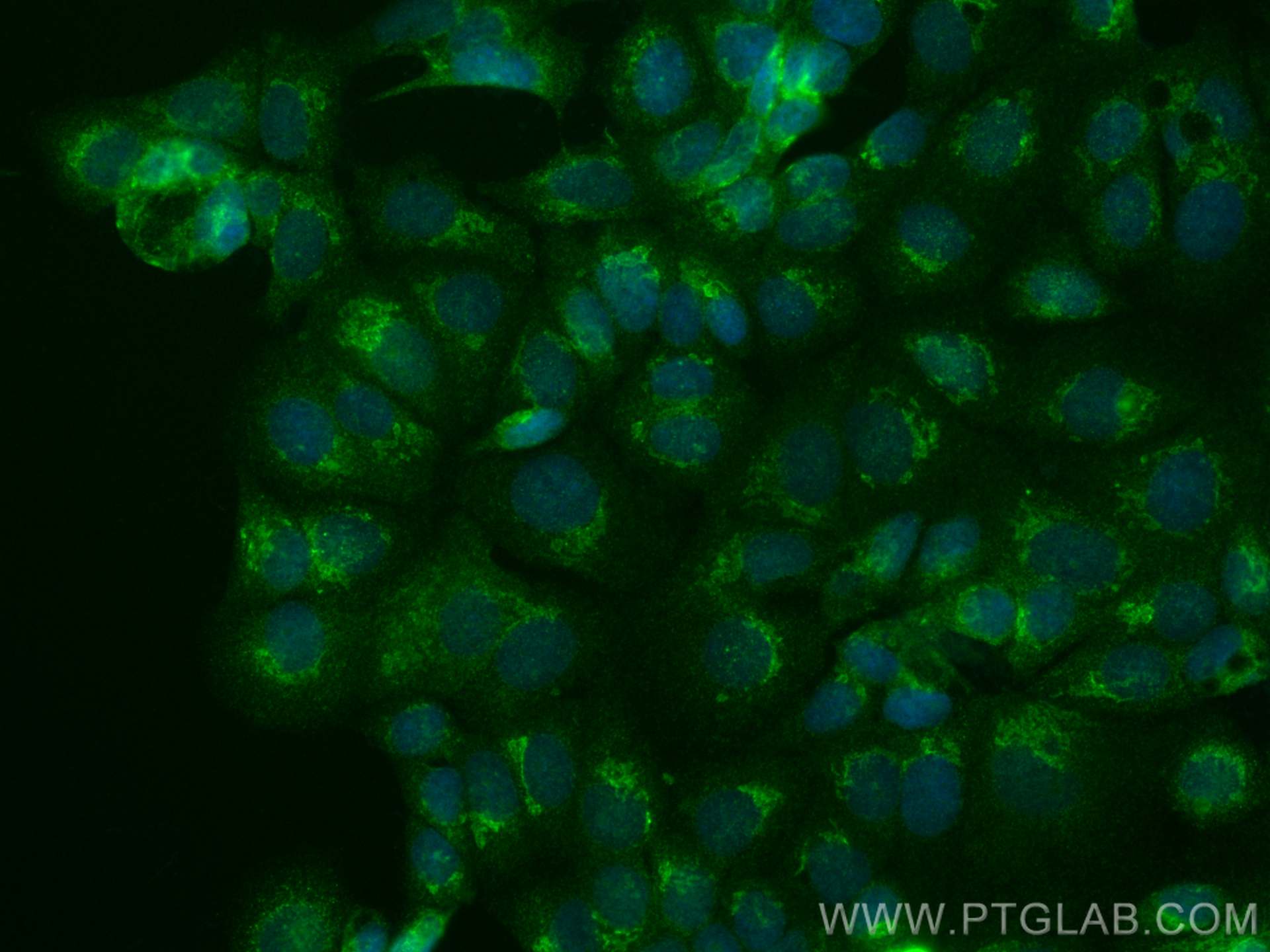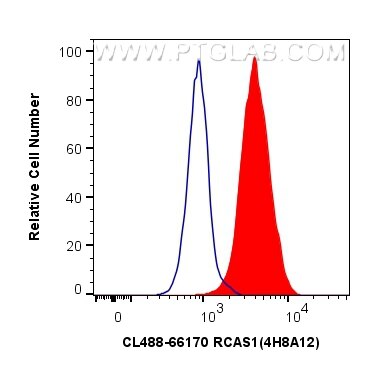Tested Applications
| Positive IF/ICC detected in | MCF-7 cells |
| Positive FC (Intra) detected in | Jurkat cells |
Recommended dilution
| Application | Dilution |
|---|---|
| Immunofluorescence (IF)/ICC | IF/ICC : 1:50-1:500 |
| Flow Cytometry (FC) (INTRA) | FC (INTRA) : 0.40 ug per 10^6 cells in a 100 µl suspension |
| It is recommended that this reagent should be titrated in each testing system to obtain optimal results. | |
| Sample-dependent, Check data in validation data gallery. | |
Product Information
CL488-66170 targets RCAS1 in IF/ICC, FC (Intra) applications and shows reactivity with human samples.
| Tested Reactivity | human |
| Host / Isotype | Mouse / IgG1 |
| Class | Monoclonal |
| Type | Antibody |
| Immunogen | RCAS1 fusion protein Ag2905 Predict reactive species |
| Full Name | estrogen receptor binding site associated, antigen, 9 |
| Calculated Molecular Weight | 213 aa, 24 kDa |
| Observed Molecular Weight | 34 kDa |
| GenBank Accession Number | BC017729 |
| Gene Symbol | RCAS1 |
| Gene ID (NCBI) | 9166 |
| RRID | AB_3084216 |
| Conjugate | CoraLite® Plus 488 Fluorescent Dye |
| Excitation/Emission Maxima Wavelengths | 493 nm / 522 nm |
| Form | Liquid |
| Purification Method | Protein G purification |
| UNIPROT ID | O00559 |
| Storage Buffer | PBS with 50% glycerol, 0.05% Proclin300, 0.5% BSA , pH 7.3 |
| Storage Conditions | Store at -20°C. Avoid exposure to light. Stable for one year after shipment. Aliquoting is unnecessary for -20oC storage. |
Background Information
Estrogen receptor-binding fragment-associated antigen 9 (EBAG9) gene was identified as an estrogen-responsive gene. The gene product, receptor-binding cancer antigen expressed on SiSo cells (RCAS1), is associated with aggressive characteristics and poor overall survival for 15 different human malignancies. The correlation between RCAS1 expression and several clinicopathological variables, including tumor size, clinical stage, invasion depth and lymph node metastasis highlights this molecule's clinical significance. Expression of RCAS1 in tumor cells plays an important role in evasion from host immune system resulting tumor progression, invasion and metastasis. Further exploration of RCAS1 biological function will facilitate development of novel therapeutic strategies that target RCAS1.
Protocols
| Product Specific Protocols | |
|---|---|
| IF protocol for CL Plus 488 RCAS1 antibody CL488-66170 | Download protocol |
| FC protocol for CL Plus 488 RCAS1 antibody CL488-66170 | Download protocol |
| Standard Protocols | |
|---|---|
| Click here to view our Standard Protocols |





